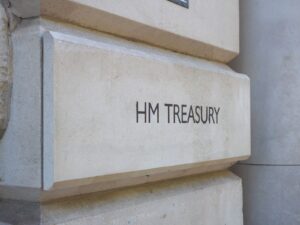Industry, advisers and trade bodies have been quick to give their response to yesterday’s budget, with both good and bad feedback for the Chancellor.
Max Sugarman, Chief Executive of Intelligent Transport Systems UK (ITS UK), said: “Today, the Chancellor confirmed an extension to the freeze on fuel duty for another year, but ignored the bigger issue of how the Government will offset the revenue loss from falling fuel duty as the UK vehicle fleet transitions to electric. As ITS UK set out in its Budget Submission, the UK needs to take a long term approach, and Government needs to outline plans for distance-based road pricing that incentivises the fairer and sustainable use of the transport network. ITS UK members have the expertise, skills and knowhow to deliver a national scheme effectively, but require the political vision and will to create a more equitable and future-ready system.”
Regarding the fuel duty freeze, RAC Head of Policy Simon Williams said: “Drivers will breathe an enormous sigh of relief after all the speculation that the 5p cut would be scrapped at the same time as pushing duty up beyond the long-term rate of 57.95p.
“It’s good to see the Government firmly recognising the importance of the car to millions of households up and down the country. Eight-in-10 drivers tell us they are dependent on their vehicles for the journeys they need to make, while 70% of commuters who live in rural areas have no other feasible alternatives to get to work beyond taking the car.
“It’s also worth remembering that even as of today 56% of the total price of a litre of petrol is already tax in the form of fuel duty, and the VAT that is charged on top.”
“It is positive to see increased funding for City Region Sustainable Transport Settlements, for EV charging infrastructure, rail projects and road maintenance across the UK. Transport technology has a key role to play in all these areas and in supporting a greener, more efficient and seamless transport network. Whether through better roadside technology, demand responsive transport, mobility as a service or the more effective use of data, we look forward to working with the Government to deliver its ambitions for transport.”
Meanwhile, Howard Cox, Founder of FairFuelUK added: “I am delighted that Rachel Reeves has listened to FairFuelUK supporters and her Party MPs’ constituents. She finally recognises that keeping Fuel Duty frozen is at the core of a laudable journey to economic growth. So, Rachel, that’s a great start. But please don’t rest on your laurels. Let’s build the first-ever road-user transport strategy that benefits the economy without your party’s false and emotional, scientifically baseless belief that the UK is the only country to save the planet and the motorist is to blame for all the environmental ills. That costly brainwashing must stop now. Start incentivising the UK’s 37m drivers and stop seeing them as an easy cash cow.”
On the £500 million on maintenance, the RAC’s Simon Williams added: “This is positive news for drivers as it should enable cash-strapped local authorities to begin the process of improving the quality of their roads.
“But it’s vital councils don’t just use the money to fill potholes as this is unlikely to deliver the long-term benefit drivers so badly want to see. We believe greater use of preventative maintenance is essential. Surface dressing roads at regular intervals is a proven, cost-effective way of ensuring potholes don’t appear in the first place, along with resurfacing the worst affected roads.”
Rob Shearing, Road Surface Marking Association CEO, said: “The Budget announced today will have a multitude of impacts on RSMA members and will have to be carefully considered. Though road markings were not mentioned, to properly repair and maintain on our roads, this will require resurfacing and refreshing of road markings.
“Whilst extra funding has been promised for road maintenance, it is unlikely to be ring-fenced and so hopefully doesn’t get spent elsewhere as Local Authorities still fight with tightening budgets elsewhere.
“We support investment in connectivity and funding for local transport, but without well maintained roads, those things will not function to their highest capacities. Hopefully, the Government will start to progress in their transport promises and further funding will be made available for roads in the future.
“Road marking companies provide safety critical infrastructure and already work on very tight margins, so hopefully a much larger NI contribution will not result in closure or forced mergers of businesses in the sector.”
John Hutton, the former cabinet minister who now chairs the Association of Infrastructure Investors in Public Private Partnerships, said: “The Chancellor’s commitment to public investment in new infrastructure is to be welcomed. However, it will be impossible to get the scale of investment needed to get Britain building again without private financing. The UK is one of the only countries in the developed world that doesn’t use public private partnerships to build new schools, hospitals and transport. We need a modern partnership between the private and public sectors that addresses the issues of the past if we’re avoid another lost decade of British infrastructure.”
Ann Carruthers, President of ADEPT, said:
“This budget includes several encouraging areas of support for local authorities and the communities they serve. However, it also raises further questions and challenges.
“In particular, we welcome the announcement on simplifying the wider local funding landscape, reducing the number of grants, as well as moving towards a five-year settlement to enable effective planning. We also support the devolution plans that aim for streamlined council structures to enhance local service efficiency. ADEPT recently joined forces with other leading local government associations ADCS, ADASS, and ADPH, calling for urgent reform and the government has listened.
“Any additional money for highways is welcomed, yet the investment still falls far short of addressing the significant backlog. We also welcome the additional investment in buses and the rollout of active travel and electric vehicle charging infrastructure, although again, this is unlikely to deliver on local authorities’ aspirations for connected transport networks.”
“However, we are awaiting further detail on the local government settlement and how the funding increases will specifically support local authorities in delivering essential services.
“Local authorities have endured years of austerity and budget cuts, leaving public services at a critical breaking point: recovery will require sustained, long-term investment to rebuild the essential services that communities rely on. It was unfortunate the government did not take the opportunity to revise its position on fuel duty, which could have further helped ease the burden on the public sector purse.
“ADEPT remains committed to working with the government toward sustainable, long-term funding solutions that will ensure our communities continue to thrive with safe, resilient and supportive services for all.”
Barney Goffer, UK Product Manager at Teletrac Navman, told Highways News: “The government was very clear that this was going to be a tough budget with more taxation than previously mooted and it was.
“While the frozen fuel duty is a pleasant surprise, the new regulations around National Insurance Contributions (NIC) are going to be a challenge for many fleets.
“Kickstarting economic growth relies on multiple sectors operating efficiently and cost-effectively – the transport sector being a major factor in this.
“While the decision for employers to pay NIC on anything over £5,000 when previously it was £9,100 could help raise a large amount, it means increased pressure for fleets, especially the transport sector which is already running on low margins to absorb.
“The obvious thing to do would be to pass the rise in tax onto the customer but in a highly competitive transport sector there’s always someone willing to run at even lower margins.”
On bus policy, Alison Edwards, Director of Policy and External Relations at the Confederation of Passenger Transport, said: “Buses are the UK’s most popular and affordable form of public transport, carrying over 10 million people a day. We welcome the Government’s ambition of improving buses nationwide and this week’s package of £1 billion in public funding for buses will safeguard vital routes and ensure that fares across England are capped at £3.
“However, our industry is a major employer in towns and cities across the UK, responsible for more than 150,000 jobs. The Chancellor’s increase in national insurance contributions will weigh heavily on bus and coach operators, typically costing £800 a year for each driver.
“This big tax rise will weaken the ability of bus operators to invest in higher frequencies, new routes and modern, environmentally friendly vehicles. And it will hurt coach operators, many of which are small, family owned businesses.
“Aside from this, we welcome the Government’s decision to freeze fuel duty. Extra money to fix potholes will give our passengers smoother journeys. And the prospect of additional funding for hydrogen transport, and zero emission vehicles, is a positive as long as buses and coaches are included.
“Of every ten pounds spent on Britain’s high streets, a pound is spent by bus passengers – contributing almost £40 billion a year to local economies. Long distance coaches, meanwhile, carry visitors who spend £8.3 billion annually in towns, cities and tourist destination.
“Collectively, the bus and coach sector is vital in achieving the Government’s missions of kickstarting economic growth and breaking down barriers to opportunity. However, contradictory policies which, on the one hand, support public transport and on the other hand impose substantial extra costs, are unhelpful.”
(File picture – Asda)























